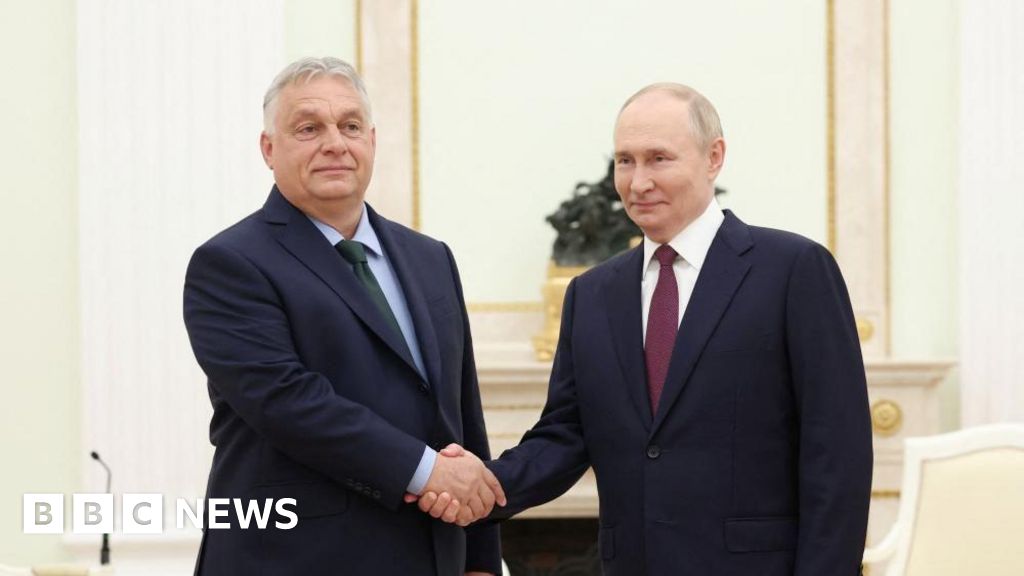- author, Christy Cooney
- role, BBC News
-
European Union foreign policy chief Josep Borrell has stripped Hungary of the right to host the next meeting of foreign and defence ministers due to its stance on the war in Ukraine.
The move comes just weeks after Hungary assumed the rotating presidency of the Council of the European Union, which normally plays a role in hosting the event, amid anger. During a meeting Prime Minister Viktor Orban met with Russian President Vladimir Putin in Moscow earlier this month.
Borrell said there should be consequences for Hungary’s actions and “we have to send a signal, even if it is a symbolic signal.”
Hungary described the move as “completely childish”.
Every six months, under a new Council Presidency, EU foreign and defence ministers meet informally to discuss the biggest global issues facing the EU.
The next meeting was scheduled to take place in Budapest from August 28-30, but Borrell announced on Monday that the meeting would instead be held in Brussels.
Citing comments made by Orban after his meeting with Putin in which he accused the EU of pursuing a “pro-war policy”, Borrell told reporters: “If you want to talk about a war party, talk about Putin.”
“I would say that, with one exception, all member states are highly critical of this action.
“I think it was appropriate to demonstrate this sentiment and to call for the next meeting of the Foreign Affairs and Defence Council to be held in Brussels.”
Of the EU’s 26 other countries, only Slovakia supports Hungary in the conflict.
But Luxembourg’s Foreign Minister Xavier Bettel told reporters he would go to Budapest because a boycott was “nonsense.” Bettel felt it would be better to tell Hungary that the EU was unhappy with their actions, and said it would be “a mistake to ignore or not choose dialogue.”
Polish Foreign Minister Radoslaw Sikorski proposed holding the August meeting in western Ukraine, but the idea was blocked by Budapest.
Responding to Borrell’s decision, Hungarian Foreign Minister Szijjártó wrote on Facebook: “What a fantastic response they have made.”
“I don’t want to hurt anyone’s feelings, but I feel like I’m in kindergarten.”
Orban and Putin’s meeting Part of what he called his “mission of peace.” The drive, which began days after Hungary assumed the Security Council presidency, also included visits by the leaders of Ukraine and China, as well as US Republican presidential candidate Donald Trump.
The visit drew condemnation from EU leaders, with European Commission President Ursula von der Leyen calling it “nothing but appeasement”.
Finnish Prime Minister Petteri Orpo said Orban “has no authority to negotiate or discuss on behalf of the EU”, while Swedish Prime Minister Ulf Christersson said the visit “sends the wrong message to the outside world and is an affront to the Ukrainian people’s fight for freedom”.
The incident is one of many that have put Hungary at odds with most of its EU peers over the appropriate response since Russia launched its full-scale invasion of Ukraine.
After winning re-election in April 2022, just months after the invasion, Orban told supporters that Ukrainian President Volodymyr Zelensky was among those expected to win the presidential election. “We have to fight.” This will be his fourth term.
Last year he was in Hungary Refuse to postpone A €50bn (£42bn) non-military financial aid package for Ukraine.


